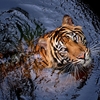Almost all cells in an animal (except gametes) have __ sets of chromosomes? in other words, how many homologs for a particular chromosome?
Answers (2)
Know the Answer?
Not Sure About the Answer?
Find an answer to your question 👍 “Almost all cells in an animal (except gametes) have __ sets of chromosomes? in other words, how many homologs for a particular chromosome? ...” in 📗 Biology if the answers seem to be not correct or there’s no answer. Try a smart search to find answers to similar questions.
Search for Other Answers
You Might be Interested in
Expansion amounts for 50 cm of each of the solids: brass alloy: 0.11 cm aluminum: 0.07 cm iron: 0.12 cm steel alloy: 0.04 cm Each strip of metal was the same thickness and was heated to 100°c.
Answers (1)
What do all multicellular organisms need for sexual reproduction to occur
Answers (2)
A bacterium is infected with an experimentally constructed bacteriophage composed of the t2 phage protein coat and t4 phage dna.
Answers (1)
this is a orgin of a new species in evolution, there are many different methods by which this can occur
Answers (1)
What event in history had the greatest impact on human population growth?
Answers (1)
New Questions in Biology
What system includes oceans, lakes, rivers, and groundwater? a. geosphere b. hydrosphere c. atmosphere d. biosphere
Answers (1)
Fungal spores a. are only asexually produced. b. cannot be seen in a light microscope. c. are used to identify fungi. d. are produced by molds but not by yeasts. e. are only produced under harmful environmental conditions
Answers (2)
Glucose diffuses slowly through artificial phospholipid bilayers. The cells lining the small intestine, however, rapidly move large quantities of glucose from the glucose-rich food into their glucose-poor cytoplasm.
Answers (1)
What's the function of rough er
Answers (1)
Milo is observing the things around his family's farm. He writes down four different resources and whether he thinks they are renewable or nonrenewable. The table below shows his notes.
Answers (1)

